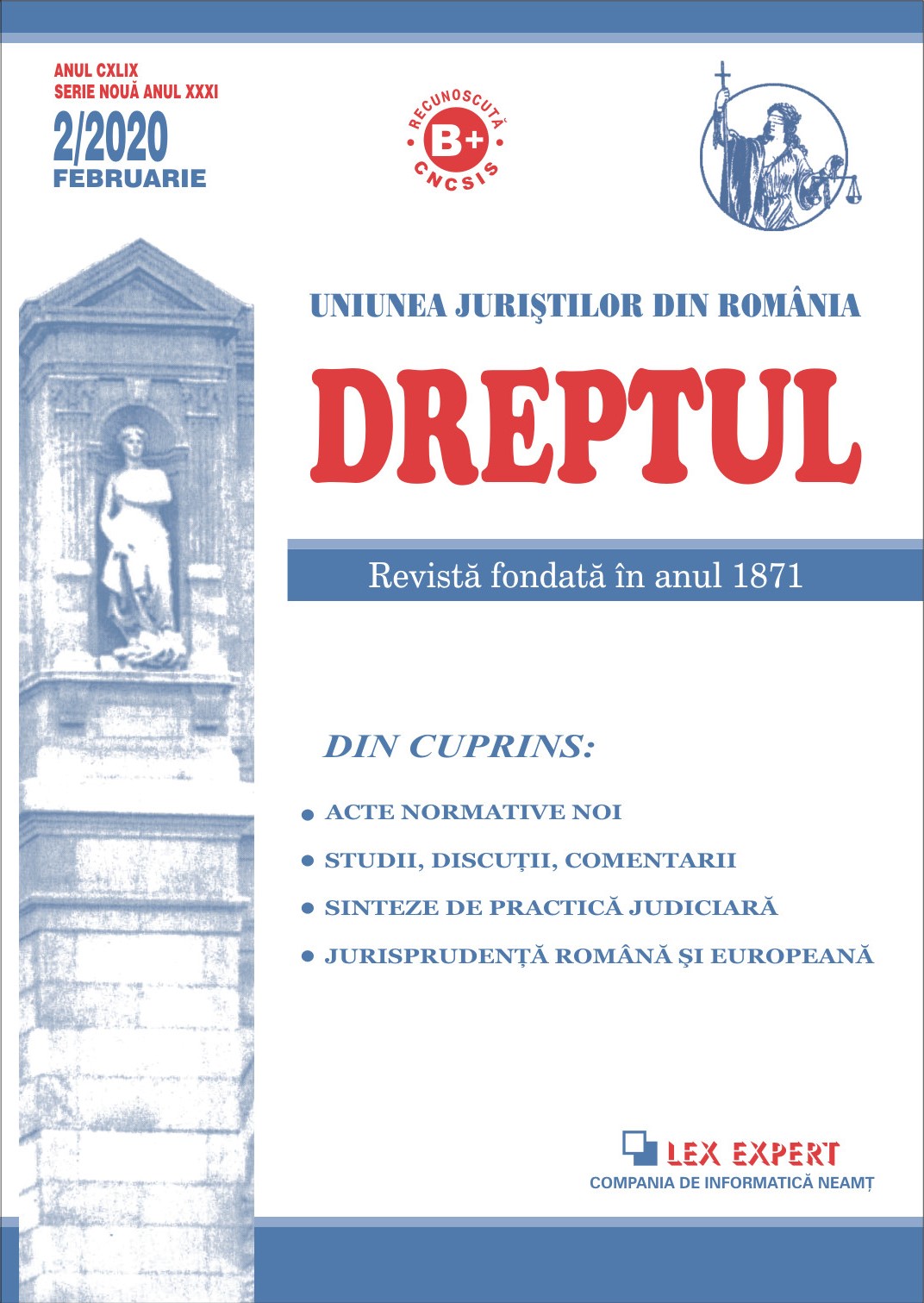Reflecții privind natura juridică a răspunderii administrativ-patrimoniale pentru daunele săvârșite prin actul de putere publică
Reflections on the legal nature of the administrative-patrimonial liability for the damages committed by the act of public power
Author(s): Ovidiu ToaderSubject(s): Constitutional Law
Published by: Uniunea Juriștilor din România
Keywords: administrative-patrimonial liability; illegal/unlawful administrative act; legal nature; fundamental right to be compensated; civil liability/tort liability;
Summary/Abstract: The legal liability is one of the main issues regarding the responsibility in administrative law. Therefore, the legal liability is able to exercise influence upon our society to some extent only by identifying the person responsible for ignoring the social values protected by law, in order to establish his/her liability. Let us stress upon the fact that the effectiveness of legal liability may determine, to a greater or a smaller extent, the establishment, re-establishment and even the survival of the rule of law. The society is more likely to take into consideration the legal liability, referring to the social and political background of these days, as well, if the liability is being applied to the civil servant or to an agent of public power, meaning a person who exercises a public function. What about the situation in which the person who is going to be held responsible for breaking the law and, therefore, being held liable for this fact is, directly or indirectly, even the creator of the law, being at the same time both part of the dominant fund and to the serviced/controlled fund? Does the above-mentioned situation supposes an antagonism in declaring responsible precisely the one who created the notion and, therefore, the premise of responsibility or, on the contrary, the antagonism would be precisely the irresponsibility of the entitled one, also, to create the right and to apply it, thus ensuring the protection of values, which establishes the base of its very existence? However, the answer to this important question is given by an old juridical command: alterum non leadere, which includes one of the fundamental rules of law, namely that of not harming another, a legal command that has the value of a magnum principle for the reason of the law, so that if the State, by any of its forms of manifestation, would evade legal responsibility, it would do so against its own interest, thus weakening its own legal and moral grounds for guarding the law, that is, guarantor of the rights and freedoms of the subjects who form the above-mentioned State, thus breaking the foundation of its very existence. Therefore, in order to protect the very existence of the law, as well as to preserve the law’s authority and, consequently, to protect the inherent rights and freedoms of a society governed by the principles of law, we can only appreciate the possibility to engage the responsibility of any subject of law which harms by its acts or deeds, the objective law, in general and/or subjective law in particular. Furthermore, starting from the necessity of the law as the foundation of any society, we have come to the necessity to engage responsibility for those who, by their deeds or acts, harm the values protected by the legal norms and, consequently, to the need to restore the damaged law order, which is equivalent, both with the requirement to cease the harmful deed or act, as well as with the need to repair the damages caused by it, that is, to remedy the injuries caused by the harmful act or deed and therefore, suffered by the subject of law. It is easy noticeable that, according to the different violated legal norms, we will distinguish different types of liability, which will always have the same purpose, namely the reunification of the order established by the legal values, which is ruined by the appearance of the illicit one, a goal that will be achieved, on a case by case basis, through operations and institutions specific to each branch of law that regulates the sphere of protected and violated social values.
Journal: Revista „Dreptul”
- Issue Year: 2020
- Issue No: 02
- Page Range: 93-114
- Page Count: 22
- Language: Romanian
- Content File-PDF

